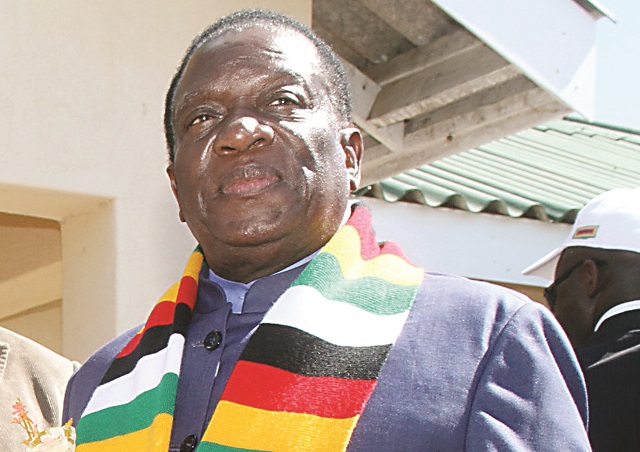EDITORIAL COMMENT: Improvement in Zimbabwe-Botswana ties encouraging
For some time, relations between Zimbabwe and Botswana – at least at the highest level — were fraught.
Arguably, this started in the later stages of Mr Festus Mogae’s presidency which ended in 2008. The tensions grew, playing out in the open sometimes, when his successor, Mr Ian Khama took over. Mr Mogae was more reserved, preferring to withhold public criticisms on the then President, Mr Robert Mugabe and also flowery praises of him. Mr Khama was quite different. He was more aggressive, openly criticising Mr Mugabe here and there for his leadership style.
Because of the poor relations, a few cross-border projects failed to take off. Prime examples are the Kazungula River Bridge and the Mozambique-Zimbabwe-Botswana railway line projects. The former was consummated by Botswana and Zambia, minus Zimbabwe while the latter has not taken off yet because of the stand-off between Zimbabwe and Botswana since the plan to execute it was announced in 2016.
All this ended with the resignation of Mr Mugabe last November. His successor, President Mnangagwa is reaching out to more countries as a way to lift the country out of isolation. He got Zimbabwe into the Kazungula River Bridge project as soon as he assumed office while the Minister of Transport and Infrastructural Development Joram Gumbo recently announced that the Mozambique-Zimbabwe-Botswana rail project is now back on track.
The signing of an agreement on Saturday upgrading the inter-state interaction between Zimbabwe and Botswana from a joint commission to a bi-national commission is further testimony of the welcome thawing of Harare-Gaborone relations. Under a joint permanent commission, the interaction is at ministerial level, ministers on either side taking turns to chair their meetings but under a bi-national commission it is the presidents themselves taking turns to chair summits annually.
President Mnangagwa and Mr Khama’s successor, President Mokgweetsi Masisi witnessed the signing of the bi-national commission by Foreign Affairs and International Trade Minister Dr Sibusiso Moyo and Botswana’s International Affairs and Cooperation Minister Dr Unity Dow on the sidelines of the just-ended Sadc summit held in Windhoek, Namibia.
“This is a momentous occasion,” Dr Dow said. “It is the genesis of meetings of His Excellencies. It makes sense to escalate our relations to the level of Bi-National Commission. It means the commission would be chaired by the Excellencies and will lead to annual meetings. For us it is very important. We are raising relations to that level and the chairs are the Presidents.”
Said Dr Moyo:
“During the last Joint Permanent Commission held in Botswana it was agreed that our relations must be taken to another level and indeed that is exactly what has happened. Today (Saturday) we signed in the presence of the two Heads of State the Bi-National Commission which basically symbolises the upstaging of our economic, security and other relations with Botswana to a different level. Why? It is critical now as we move forward not only on Botswana, but as a region, it is high time that we should be looking from regional perspective in the marketing of tourism. Let a tourist come through Windhoek to Cape Town to Victoria Falls and somewhere to Tanzania so that he can spend his money without having any impediments like issues to do with visas and other issues. Secondly, between ourselves and Botswana, we have got bilateral national interests which cross trans-boundaries and which must be tackled from a joint perspective. An example is, we want to build a railway line from Botswana through Zimbabwe and then to Mozambique so that we develop a new port north of Beira. That is already something under serious consideration and the three countries have both agreed to do that.”
This is the level of interaction that both countries need. We are hopeful that they and their people will benefit socially, economically and politically as a result of the improving relations and the signing of the Saturday agreement.
We expect Zimbabwe-Botswana trade and business ties to deepen. Companies must be encouraged to invest across the borders individually or through joint ventures for the benefit of the investors, their governments and their peoples.
Historically and culturally, the people of Zimbabwe and Botswana are one. They are neighbours along their common border, in many cases they are actually relatives, some related through marriage. Furthermore, Botswana supported our fight for independence. Many people used Botswana as a transit point, to Zambia from which they prosecuted the liberation war. We are therefore, encouraged by the steps that are being taken to restore the relations of the two neighbours.











Comments